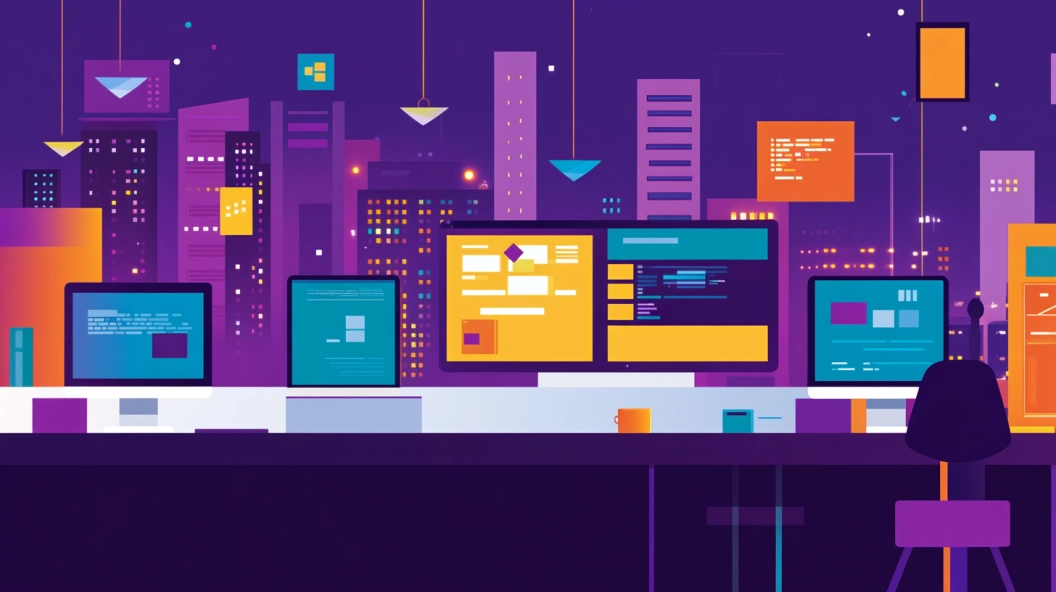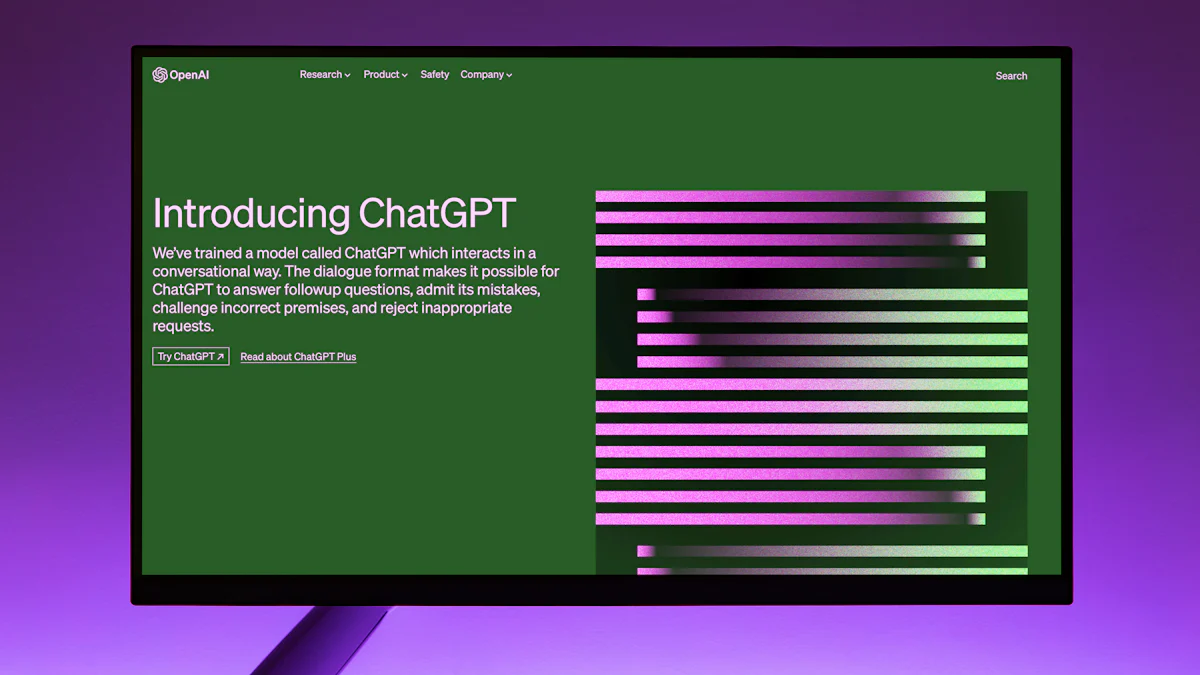How Microsoft is Shaping the Future of DevOps

Microsoft plays a pivotal role in the technology landscape. You might wonder how they influence DevOps, a crucial methodology for modern software development. DevOps emphasizes collaboration between development and operations teams to deliver software efficiently. Microsoft is Shaping this field by driving innovation and offering tools that enhance productivity and security. Their commitment to advancing DevOps practices ensures you benefit from faster, more reliable software solutions. By integrating cutting-edge technologies, Microsoft continues to lead the way in transforming how you approach software development.
How Microsoft is Shaping DevOps Philosophy
Integration of Development and Operations
Microsoft is Shaping the integration of development and operations by bridging the gap between teams. You often find that development and operations teams work in silos, which can lead to miscommunication and inefficiencies. Microsoft encourages collaboration, ensuring that both teams share a common goal. This shared responsibility fosters a seamless software delivery process. By using automation, you can streamline tasks, making it easier for teams to work together without unnecessary delays.
Bridging the Gap Between Teams
To bridge the gap between teams, Microsoft is Shaping a culture of collaboration. You can use tools like Azure DevOps to facilitate communication and coordination. These tools allow you to track progress, share updates, and resolve issues quickly. By breaking down barriers, you ensure that everyone is on the same page, leading to more efficient workflows.
Enhancing Collaboration and Communication
Enhancing collaboration and communication is crucial for successful DevOps practices. Microsoft is Shaping this aspect by providing platforms that support real-time communication. You can use Microsoft Teams to hold meetings, share files, and discuss projects. This integration ensures that you have all the information you need at your fingertips, reducing the chances of errors and misunderstandings.
Continuous Integration and Continuous Deployment (CI/CD)
Microsoft is Shaping the future of CI/CD by streamlining software delivery. You can implement CI/CD pipelines to automate the testing and deployment of your code. This approach reduces the time it takes to deliver new features and updates, allowing you to respond quickly to market demands.
Streamlining Software Delivery
Streamlining software delivery involves automating repetitive tasks. Microsoft is Shaping this process by offering tools that help you automate testing, building, and deployment. With Azure Pipelines, you can set up a CI/CD pipeline that automatically tests and deploys your code. This automation ensures that your software is always ready for release, reducing the risk of human error.
Tools and Practices for CI/CD
To effectively implement CI/CD, you need the right tools and practices. Microsoft is Shaping the landscape by providing a suite of tools that support CI/CD processes. You can use Azure DevOps to manage your code repositories, build pipelines, and deploy applications. By adopting these practices, you ensure that your software delivery is efficient and reliable.
How Microsoft is Shaping Azure DevOps Services

Overview of Azure DevOps
Azure DevOps offers a comprehensive suite of tools that enhance your software development process. By using Azure DevOps, you gain access to features that streamline collaboration and improve efficiency.
Key Features and Benefits
Azure DevOps provides several key features that benefit your development workflow:
Version Control: Manage your code with precision using Git repositories.
CI/CD Pipelines: Automate testing and deployment to ensure rapid delivery.
Agile Tools: Plan and track work with boards and backlogs.
Testing Tools: Conduct automated and manual testing to maintain quality.
These features help you deliver software faster and more reliably. Microsoft is Shaping the way you approach development by integrating these tools into a seamless experience.
Integration with Other Microsoft Tools
Azure DevOps integrates smoothly with other Microsoft products, enhancing your productivity. You can connect with:
Microsoft Teams: Facilitate communication and collaboration.
Azure Services: Deploy applications directly to the cloud.
GitHub: Sync repositories for a unified workflow.
This integration ensures you have a cohesive environment, making it easier to manage projects and collaborate with your team.
Case Studies and Success Stories
Exploring real-world applications of Azure DevOps reveals its impact on business efficiency. Microsoft is Shaping industries by providing solutions that drive innovation and success.
Real-world Applications
Consider a global technology company that adopted cloud-native DevOps practices across AWS, Azure, and GCP. By leveraging Azure DevOps, they achieved remarkable results in agility and scalability. This transformation showcases how Microsoft is Shaping the future of DevOps through practical applications.
Impact on Business Efficiency
The adoption of Azure DevOps leads to significant improvements in business efficiency. Companies experience:
Increased Agility: Respond quickly to market changes.
Cost Efficiency: Optimize resources and reduce expenses.
Innovation: Foster a culture of continuous improvement.
These outcomes demonstrate how Microsoft is Shaping the landscape of DevOps, enabling you to achieve greater success in your projects.
How Microsoft is Shaping GitHub Integration
Acquisition and Integration
Microsoft is Shaping the future of open-source collaboration through its acquisition and integration of GitHub. You can now experience enhanced collaboration with developers worldwide. By integrating GitHub with Azure DevOps, Microsoft provides a seamless environment for managing your projects. This integration allows you to invite GitHub account users to collaborate within an Azure DevOps project, fostering a more inclusive and productive development process.
Enhancing Open Source Collaboration
Microsoft is Shaping open-source collaboration by providing tools that support real-time communication and project management. You can use Azure Boards and Azure Pipelines to integrate with GitHub, enabling continuous integration (CI) builds for GitHub Enterprise repositories. This integration ensures that you can manage your code efficiently, track progress, and maintain high-quality standards across your projects.
New Features and Innovations
Microsoft is Shaping the landscape of software development by introducing new features and innovations in GitHub. You can benefit from the GitHub Checks feature, which sends detailed information about pipeline status, test results, code coverage, and errors. This feature helps you identify issues early and maintain the quality of your code. Additionally, the user interface supports cloning GitHub repositories, pushing and pulling commits, and more, making it easier for you to manage your projects.
GitHub Actions for Automation
Microsoft is Shaping workflow automation with GitHub Actions. You can simplify your workflow by automating repetitive tasks, allowing you to focus on more critical aspects of your projects. GitHub Actions enable you to create custom workflows that automate your software development processes, from testing to deployment.
Simplifying Workflow Automation
You can simplify your workflow automation by using GitHub Actions to automate tasks such as code testing, building, and deployment. Microsoft is Shaping this process by providing a platform that allows you to define workflows using simple YAML files. This approach ensures that you can automate your processes without needing extensive programming knowledge, making it accessible to developers of all skill levels.
Examples of Use Cases
Microsoft is Shaping the way you approach automation by offering practical examples of how GitHub Actions can be used. You can automate tasks like running tests on every pull request, deploying applications to cloud services, or even sending notifications to your team when a build fails. These use cases demonstrate how GitHub Actions can enhance your productivity and streamline your development process.
How Microsoft is Shaping Cloud-Native Approaches
Embracing Kubernetes and Containers
Microsoft is Shaping the future of cloud-native development by embracing Kubernetes and containers. You can benefit from containerization, which allows you to package applications with all their dependencies. This approach ensures consistency across different environments.
Benefits of Containerization
Portability: You can run containers on any platform that supports Docker or Kubernetes.
Scalability: Easily scale applications up or down based on demand.
Efficiency: Containers use resources more efficiently than traditional virtual machines.
By adopting these benefits, you enhance your development process and improve deployment speed.
Microsoft’s Contributions to Kubernetes
Microsoft is Shaping Kubernetes by actively contributing to its development. You can use Azure Kubernetes Service (AKS) to manage your containerized applications. AKS simplifies deployment and management, allowing you to focus on building features. Microsoft’s involvement ensures that Kubernetes remains a robust and reliable platform for your needs.
Serverless Computing with Azure Functions
Microsoft is Shaping serverless computing through Azure Functions. You can execute code without managing servers, which reduces overhead and complexity.
Advantages of Serverless Architecture
Cost-Effectiveness: Pay only for the compute resources you use.
Automatic Scaling: Azure Functions automatically scale based on demand.
Simplified Management: Focus on code rather than infrastructure.
These advantages make serverless architecture an attractive option for modern applications.
Use Cases and Examples
You can leverage Azure Functions for various use cases:
Event-Driven Applications: Trigger functions in response to events like database changes or HTTP requests.
Data Processing: Process data streams in real-time.
Automation: Automate routine tasks such as file processing or notifications.
By exploring these examples, you see how Microsoft is Shaping the way you build and deploy applications.
How Microsoft is Shaping Security in DevOps
Microsoft’s Security Practices
Integrating Security into DevOps
Microsoft is Shaping the integration of security into DevOps by embedding security practices throughout the development lifecycle. You can use Microsoft Security DevOps, a command line application, to incorporate static analysis tools directly into your workflow. This tool helps you identify vulnerabilities early, ensuring that your code remains secure from the start. By integrating security measures at every stage, you reduce the risk of security breaches and maintain high standards of software quality.
Tools for Enhancing Security
To enhance security, Microsoft provides a suite of tools that you can leverage. DevOps security within Defender for Cloud offers a central console that empowers you to protect applications and resources from code to cloud. This tool provides unified visibility into your DevOps security posture, allowing you to prioritize the remediation of critical issues. By using these tools, you ensure comprehensive threat protection across multicloud environments, enhancing the overall security of your projects.
Compliance and Governance
Meeting Industry Standards
Microsoft is Shaping compliance and governance by helping you meet industry standards. You can rely on their solutions to ensure that your software development processes adhere to necessary regulations. By following these standards, you maintain trust with your users and stakeholders, demonstrating your commitment to security and quality.
Microsoft’s Compliance Solutions
Microsoft offers compliance solutions that simplify the process of meeting regulatory requirements. You can use these solutions to manage compliance across various environments, ensuring that your projects align with industry standards. By adopting Microsoft’s compliance tools, you streamline governance processes and reduce the complexity of managing compliance, allowing you to focus on delivering high-quality software.
How Microsoft is Shaping AI and DevOps

AI-Driven DevOps Tools
Microsoft is transforming DevOps with AI-driven tools. These tools enhance your ability to predict and automate, making your development process more efficient.
Enhancing Predictive Analytics
You can leverage AI to improve predictive analytics in DevOps. Microsoft integrates smart algorithms into Azure DevOps pipelines. These algorithms help you anticipate potential issues before they occur. By analyzing patterns in your data, AI provides insights that guide your decision-making. This proactive approach reduces downtime and enhances the reliability of your software.
Automating Routine Tasks
Automation of routine tasks becomes seamless with AI. Microsoft aims to make developers 50% more efficient by incorporating AI capabilities into IT infrastructure management. You can automate code reviews, bug detection, and deployment strategies. This automation frees up your time, allowing you to focus on more complex tasks. By reducing manual intervention, you increase the speed and accuracy of your development processes.
Machine Learning in DevOps
Machine learning plays a crucial role in enhancing DevOps practices. Microsoft uses machine learning to improve software quality and provide valuable use cases.
Improving Software Quality
Machine learning helps you improve software quality by identifying defects early in the development cycle. Microsoft invests significantly in AI infrastructure to support this. You can use machine learning models to analyze code and detect anomalies. This analysis ensures that your software meets high-quality standards before release. By catching errors early, you reduce the cost and effort required for later fixes.
Use Cases and Benefits
You can explore various use cases of machine learning in DevOps. For instance, companies use Azure DevOps to integrate machine learning models into their CI/CD pipelines. This integration streamlines testing and deployment, ensuring consistent performance across environments. The benefits include:
Enhanced Efficiency: Automate repetitive tasks and focus on innovation.
Improved Accuracy: Use data-driven insights to make informed decisions.
Scalability: Adapt to changing demands with ease.
By adopting these practices, you harness the power of machine learning to drive success in your projects.
How Microsoft is Shaping Future Trends and Innovations
Emerging Technologies in DevOps
Quantum Computing
You may wonder how quantum computing will impact DevOps. Microsoft is at the forefront of this technological revolution. Quantum computing promises to solve complex problems much faster than traditional computers. This capability can transform how you approach tasks like optimization and simulation in DevOps. By leveraging quantum algorithms, you can enhance your software development processes, making them more efficient and effective.
Edge Computing
Edge computing is another area where Microsoft is making significant strides. This technology allows you to process data closer to its source, reducing latency and improving performance. With edge computing, you can deploy applications that require real-time data processing, such as IoT devices and autonomous systems. Microsoft provides tools and platforms that enable you to harness the power of edge computing, ensuring that your applications remain responsive and reliable.
Microsoft’s Vision for the Future
Long-term Goals and Strategies
Microsoft's long-term goals focus on integrating cutting-edge technologies into DevOps practices. The company aims to redefine software development by enabling you to go from idea to code instantly. By incorporating AI capabilities into IT infrastructure and operations, Microsoft empowers you to manage your projects more efficiently. This vision includes creating a seamless environment where collaboration, code, and infrastructure work together harmoniously.
Potential Impact on the Industry
The potential impact of Microsoft's innovations on the industry is profound. By adopting these emerging technologies, you can expect:
Increased Efficiency: Streamline your development processes with AI-driven tools and automation.
Enhanced Collaboration: Use integrated platforms to improve communication and coordination among teams.
Greater Innovation: Leverage quantum and edge computing to tackle complex challenges and create innovative solutions.
These advancements position Microsoft as a leader in shaping the future of DevOps, providing you with the tools and strategies needed to succeed in an ever-evolving landscape.
Microsoft's influence on DevOps is profound. You see their commitment to innovation through tools like Azure DevOps, which streamline software delivery and enhance security. The ongoing evolution of DevOps practices, driven by real-world case studies, showcases how these methodologies accelerate software delivery and drive innovation. As you look to the future, Microsoft's role in technological advancements remains pivotal. By integrating AI into DevOps workflows, they redefine software development, enabling faster code writing and deployment. This transformation empowers you to confidently build, test, and deliver applications, meeting user needs and business objectives.
See Also
Comprehending Microsoft Azure DevOps for Programmers
The Growth of Microsoft Azure and Its Impact on Developers
The Importance of Microsoft Specialists in Digital Transformation
Incorporating GitHub into Azure DevOps for Smooth Development
